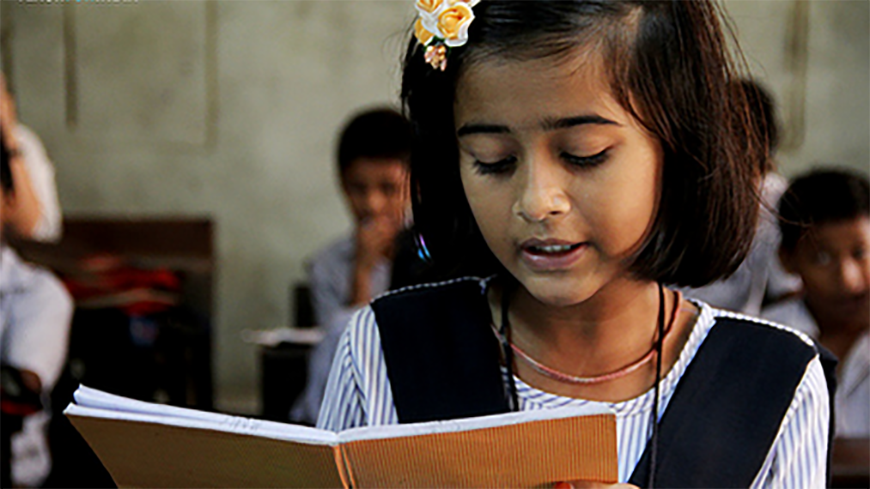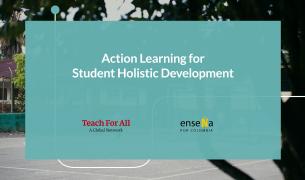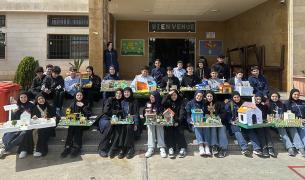The transformative power of literacy: A pathway to leadership and change

Literacy is more than the ability to read and write; it’s the gateway to knowledge, empowerment, and transformation. Every year, we celebrate International Literacy Day to recognize the profound impact literacy has on individuals and societies. Literacy is the foundation upon which we build better futures—it unlocks doors, creates opportunities, and fuels the drive to achieve dreams. It’s no exaggeration to say that literacy is the key to a better, more equitable world.
But literacy today is not just about understanding words on a page. In our increasingly complex and interconnected world, literacy has evolved to include digital literacy, climate literacy, financial literacy, and more. These new forms of literacy equip people to navigate the challenges of the 21st century, enabling them to make informed decisions, engage in civic life, and contribute to sustainable development. As we recognize these expanding dimensions, we also reaffirm that the heart of literacy—its ability to empower and transform—remains as vital as ever.
At Teach For All, literacy is central to our mission of fostering leadership. We believe that improving literacy isn’t just about teaching students to read; it’s about empowering them to become leaders who can shape their own futures and positively impact their communities. When students acquire foundational literacy skills, they gain more than just knowledge—they gain the confidence and capacity to lead.
Across our network, we see inspiring examples of how literacy is being championed as a tool for leadership and change. In the U.S., Teach For America’s CEO Elisa Villanueva Beard, emphasizes the importance of phonics in early literacy development. By prioritizing evidence-based methods, Teach For America ensures that students not only learn to read but also develop the critical thinking skills that are essential for leadership. In Nigeria, Teach For Nigeria teachers made strides in improving literacy outcomes in the foundational grades. RAND reported a 0.07 standard deviations higher than students in comparison classrooms on literacy. These efforts are more than just academic exercises; they are about laying the groundwork for future leaders who will drive change in their communities.
Our commitment to literacy is also about addressing the urgent challenge of learning poverty, a crisis that leaves millions of children around the world without basic reading skills. We see the role of the Teach For All network as a crucial contributor to reducing these stark statistics. Holistic education—integrating literacy, numeracy, and socio-emotional learning—is at the core of our approach. We know that literacy is not just a skill; it is the bedrock upon which leadership is built. Without it, we cannot expect our young people to reach their full potential as leaders.
We are inspired by the incredible work of our alumni, who continue to lead the charge in literacy and education. Simone Graffy, a Teach First (UK) alumnus and co-founder of Inspiring Teachers, has developed a smart coaching app that supports rigorous teaching methods, helping teachers deliver high-quality education. Tom Parry, another Teach First alumnus, co-founded Instill Education to provide accessible, high-quality pre-service teacher training, ensuring that new generations of teachers are equipped to foster literacy from day one. Sharon Zacharia, a Teach For India alumna, now serves as a Program Officer at the Bill & Melinda Gates Foundation, where she oversees initiatives that prioritize teaching and learning in early grades. Aramide Kayode, a Teach For Nigeria alumna, founded Talent Mine Academy, which provides long-term access to quality education for children in low-income communities, employing methods like essentials for literacy methodology and assessments to ensure every child can succeed.
These are just a few examples of the impact that our network is having on literacy and leadership. They remind us that literacy is not just a skill to be taught but a powerful tool for change, a catalyst for leadership, and a foundation for a better future.
As we celebrate International Literacy Day, we also celebrate the launch of our Foundational Learning Initiative, a project aimed at strengthening foundational literacy and numeracy programs in Sub-Saharan Africa. This initiative is about more than just improving literacy outcomes—it’s about cultivating the next generation of leaders who will drive progress in their communities and beyond. Over the next year, we will be working closely with partners in Ethiopia, Nigeria, Kenya, Uganda, Zimbabwe, and South Africa to explore how we can intentionally integrate leadership development with foundational learning. This pilot is our commitment to building a future where every child, regardless of where they live, has the opportunity to become a leader.
Literacy is the foundation of leadership. It’s the tool that empowers individuals to rise, to lead, and to transform their world. As we mark International Literacy Day, let’s remember that our work doesn’t stop here. We are building a movement—a movement that sees literacy as a pathway to leadership and a better future for all.


